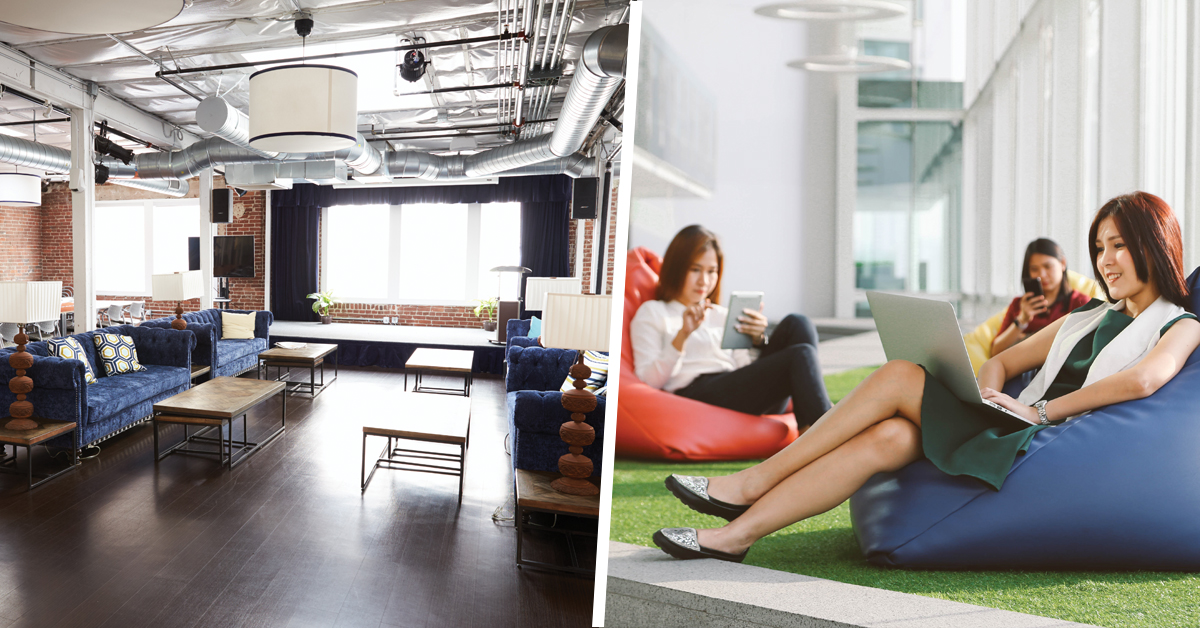
By Ellen Forman
During the pandemic, many remote workers booked a week at a hotel to change up the home-office scenery – and discovered they could sneak in a mid-day massage between meetings. Still others sought out more space in luxurious apartments in other cities.
Now, as employers attempt to lure workers back to the office, some returnees may find that rows of cubicles have been replaced by comfy couches and private meeting spaces – and a favorite brand of soda could be sitting next to freshly baked donuts in the break room.
These scenarios represent “hospitalitization,” a rising demand for comfort and amenities brought on by working at home during the pandemic. Experts say the trend will have a major impact on residential and office space development for years to come.
Yet as a full return to the office remains uncertain, new trends emerge daily. What are the key takeaways for those who plan to develop, rent or own property in the coming years?

FIU students, alumni and real estate experts learned about the latest trends during a spring 2022 Wertheim Lecture Series panel session that was co-presented by the Hollo School of Real Estate at FIU Business and FIU’s Chaplin School of Hospitality & Tourism Management.
“Real estate is about hospitality,” said William Hardin, dean of FIU Business and founding director of the Hollo School. “It’s about making people feel good where they are.”
Panel moderator Clay Dickinson (DBA ’22), adjunct lecturer at the Hollo School, noted that many of the trends that had already begun were sent into rapid-fire mode during the pandemic, led by the use of technology in the workplace: “The pandemic forced a billion relative Luddites to adapt to new virtual communications technologies and many, over time, have actually become quite comfortable with them.”
He noted the impact of creating a more comfortable workplace was having throughout U.S. corporations. For example, some companies are reimagining office spaces to make common areas “more welcoming and truly common,” and private areas more private. “Open floor plans can get quite noisy and make it difficult to hold a private conversation,” said Dickinson, executive managing director, Valuation Advisory Services, Caribbean and Latin America Region, JLL Hotels & Hospitality.
And while many offices are reimagining spaces to make them more “hospitable,” some companies are perceiving that there may never be a full return to the office. As a result, there’s a growing trend to convert some office space into other uses.
“One of the world’s traditionally more staid real estate sectors – industrial – is on fire,” he said.
Observers at hospitality giant Marriott International saw the trend. “When owners were staying in our residences longer, we saw how the behaviors of working at home had changed,” said panelist Sarah Khalifa, vice president of mixed-use development for Marriott. “It became work-with-play, taking a business call from the pool, or closing a deal in between spa appointments.”
Before the pandemic, Orlando-based Dart Interests, a property development firm, was a traditional 9-to-5, face-to-face environment. Coming back from a lockdown, the company recognized that the office needs to compete with the home as a desirable environment, said Stewart Brown, another panelist and executive vice president at Dart.
Placing a premium on face-to-face connection, “we changed our office pretty dramatically,” he said. “We realize that our kitchen has to compete with their kitchen. To move away from isolation and facilitate conversation, many of Dart’s cubicles are being replaced with more private, comfortable spaces and conference rooms. The built environment is for collaborating and instilling a culture,” Brown added.
How deeply into real estate will the hospitalitization trend reach?
Panelist Victor Ballestas (BA ’98), principal of Integra Investments, whose properties include the new Starwood headquarters in Miami Beach, noted that the appetite for amenities has spread to marinas.
“Five years ago, the marina was where the auto shop once was,” said Ballestas, whose company now holds five marinas. “Today, it’s clean and new. You drive in, someone greets you, you have a restaurant and a bar, a space where people want to hang out, rather than a storage yard.”
Vince Angelo, area president for Orlando-based NDM Hospitality, a management company focused on real estate development, noted rising consumer interest in booking homes in communities featuring a full range of resort amenities, including waterparks, dining and shopping opportunities.
“When you check into your home, you’ll see services that you would see in a hotel,” he said. “The bellman helps you with your luggage. Room service delivers meals to your house.”
Strong consumer experiences will fuel appetite for these luxury properties, noted Deepak Ohri, founder of lebua Hotels & Resorts and executive-in-residence at the Pino Global Entrepreneurship Center at FIU Business.
“Upscale consumers are moving to a lifestyle focus,” he said. “They need space, and they need privacy.”